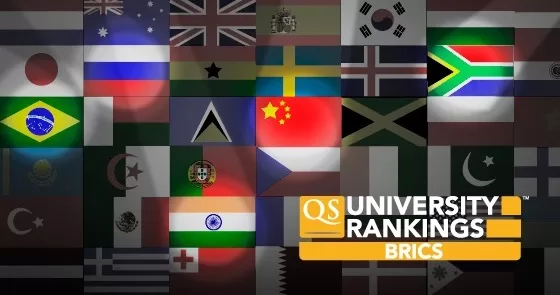
The annual QS BRICS Conference will take place on the 18th of June in China, in Beijing.
The 2014 QS University Rankings: BRICS will be launched during the opening session of the event. To register click here. Join higher education leaders from Brazil, Russia, India, China, and South Africa to discuss institutional development, internationalization, student and academic mobility, academic recruitment and research collaboration. Read more
Internationalization, student and academic mobility, and research partnerships will be the focus of this year’s gathering. BRICS universities are striving to succeed in the international arena as the world takes note of their strides in research and internationalisation. The rapidly changing structure of BRICS universities creates an opportunity to build world-class universities through global partnerships and collaboration. Following this trend the 2014 QS BRICS Conference is designed to bring together leaders of higher education institutions to share their knowledge, experiences and views on the recent trends, policies and developments in the world of academia.
After the successful launch of the first “QS University Rankings: BRICS” and following the inaugural QS BRICS Conference in December 2013, we will present the results of the 2nd edition of the BRICS rankings, that was created to raise awareness of universities from emerging markets, to show how they compare with each other – and with the rest of the world.
Ben Sowter, Head of QS Intelligence Unit, will lead the discussions and highlight opportunities for international collaboration which can drive prosperity for BRICS higher education institutions.
In the session about student mobility we will look at how countries have become increasingly interconnected due to globalization, and how universities likewise have to undergo significant changes. With over 4.3 million students choosing to study outside of their home countries, experts will share best practices of providing research, curriculum and infrastructural support.
And in the final session we will look at how university’s role in knowledge creation calls for universities to expand their research capacity, and we will share strategies and best practices to enhance international cooperation.



